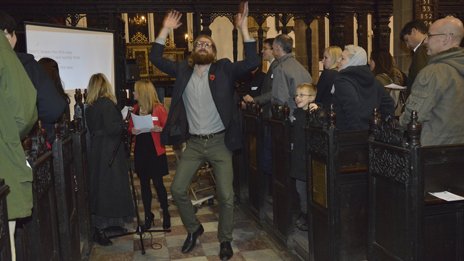With three clerical ladies. I don’t know who in Anglican PR land came up with this pithy epithet but, whoever you are, please stop. You are making my job much harder.
The heads of North American Anglican and Lutheran churches are combining their efforts when issuing things like pastoral letters in cases of continental calamities.
The issuing of natural disaster pastoral letters is of such import that their combining will undoubtedly send transcendent ripples of well-being wafting through the entire eco-system. Future generations will declare that this was moment when the rise of the oceans began to slow and our planet began to heal. Really.
From here:
The heads of the Anglican Church of Canada, the Evangelical Lutheran Church in Canada (ELCIC), the Episcopal Church and the Evangelical Lutheran Church in America (ELCA) have agreed to co-ordinate their responses to “events that transcend” their borders, such as natural disasters.
They could, for instance, issue a joint pastoral letter in response to a natural calamity
[….]
Leaders of the four churches reached this agreement when they met for a day and a half of informal talks last December in Winnipeg. Since 2010, the heads of these four churches have met for informal talks, “becoming colloquially known as the Four-Way“, said Myers.


 St John the Evangelist in Leeds can rarely have hosted such an ungodly meeting.
St John the Evangelist in Leeds can rarely have hosted such an ungodly meeting.